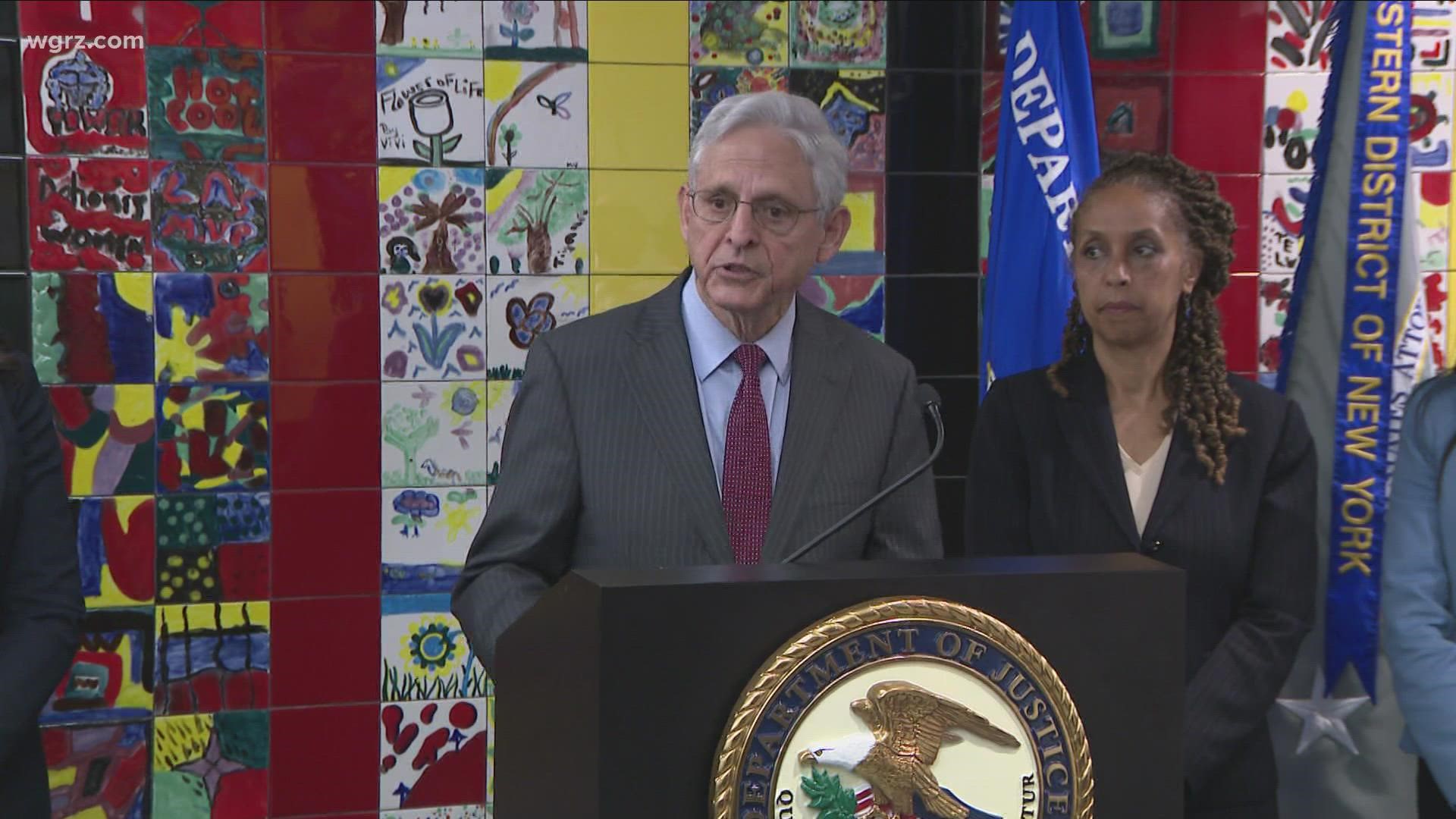BUFFALO, N.Y. — We now know that 18-year-old Payton Gendron will be making his first Federal court appearance on Thursday morning, as he is now charged in a federal complaint.
He will have three attorneys from the Federal Public Defender's Office. That is in addition to the three court-appointed attorneys handling his state level case with its indictment.
It was expected that the state and federal prosecutions for the Buffalo shooter would possibly proceed on dual tracks, especially with that hate crime designation.
We already know about the 25-count state indictment, which could carry a maximum sentence of life in prison without parole. But now we have a 26-court federal complaint, which includes charges that carry a potential death penalty with conviction.
U.S. Attorney General Merrick Garland was asked about that during his Buffalo visit and spoke a bit about his conversation with the victims' families, who could share their views on the death penalty.
Garland, flanked by top Justice Department officials, began his Buffalo visit by paying his respects and laying flowers at the memorial for the 10 shooting victims.
But he told reporters he specifically wanted to meet with the victim's families as he did in a private session. He also praised the strength of the community.
"In the days and weeks since the attacks, we all witnessed the strength of this community's bonds, its resilience, its love. I am humbled to have just felt that firsthand in my discussions with the families," Garland said.
Garland told reporters of the special duty of his department and its prosecutors to handle hate crimes.
"At the Justice Department, we view confronting hate crimes as both our legal and our moral obligation," he said.
Assistant U.S. Attorney for Civil Rights Kristen Clarke added: "Today we charged this defendant with violating the Matthew Shephard and James Byrd Junior Hate Crimes Prevention Act, alleging he murdered 10 innocent people and attempted to murder three others with a firearm, because he wanted to kill and injure Black people."
Garland, who was one of the chief federal prosecutors in the 1995 Oklahoma City bombing case, which lead to the 2001 execution of Pendleton native Timothy McVeigh, was asked about the possibility in this case.
Even though President Biden has imposed a moratorium on it, and Garland is also not personally known to be in favor of capital punishment, South Carolina church shooter Dylann Roof is still facing it.
So again, in this case the families will have a say, according to Garland, if it's strongly considered by the Justice Department.
"This is a death penalty eligible crime," Garland said. "The Justice Department has a series of procedures and follow-ups. First, of course, there has to be an indictment. After the indictment, then the regulatory procedures would be followed, and the families and the survivors will be consulted."

